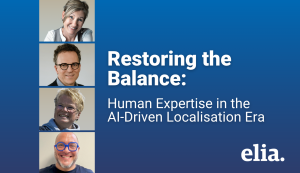The need for seamless communication between diverse cultures and languages has never been more critical. Interpreting services play a crucial role in bridging language barriers and facilitating effective communication in various sectors, including business, healthcare, diplomacy, and more. Interpreting services are undergoing significant transformations, revolutionising the way we break down language barriers. In this blog, we will explore how technology is reshaping the landscape of interpreting services and its impact on global communication.
Remote Interpretation and Teleconferencing
One of the most significant changes technology has brought to interpreting services is remote interpretation. With teleconferencing tools and cloud-based communication platforms, interpreters can now offer their services from anywhere in the world. This has eliminated the need for physical presence, making interpreting services more accessible and cost-effective for businesses and organisations operating on a global scale. Remote interpretation also facilitates real-time communication during international conferences, meetings, and events, thereby fostering cross-cultural collaboration and understanding.
Machine Translation and AI-Powered Interpreting
Machine translation and AI-powered interpreting tools have significantly impacted the industry. While machine translation has been around for a while, recent advancements in artificial intelligence have made these systems more accurate and reliable. AI-powered interpreting tools can quickly process and translate large volumes of text and speech, enabling quick and efficient communication across languages. Although these tools may not completely replace human interpreters, they complement their services, providing invaluable support in fast-paced and high-volume language tasks.
Video Remote Interpreting (VRI)
Video Remote Interpreting (VRI) is a groundbreaking technology that allows interpreters to provide their services through video conferencing platforms and offers a wider spectrum of interpreters available for use of service. VRI is particularly beneficial in healthcare settings, where quick access to language services can be critical for patient care. This technology has proven to be especially useful during emergencies and in rural areas, where on-site interpreters may not be readily available.
VRI ensures that patients and healthcare professionals can communicate effectively, regardless of language differences, leading to improved healthcare outcomes.
Mobile Apps and On-Demand Interpreting
Smartphones have allowed a new wave of on-demand interpreting services through mobile apps. These apps connect users with professional interpreters in real time, enabling instant communication across languages. On-demand interpreting apps cater to various industries, such as travel, customer service, and international business, empowering individuals and companies to communicate effectively and expand their global reach.
Virtual Reality (VR) Interpreting
Virtual Reality (VR) has extended its applications beyond gaming and entertainment. In the field of interpreting services, VR offers a unique and immersive experience for language learners and interpreters alike. VR simulations can provide a safe environment to practice interpreting skills and simulate real-life scenarios and diverse cultural contexts. This technology also enhances language learning experiences, enabling learners to interact with virtual native speakers and improve their language proficiency.
Multilingual Chatbots and Customer Support
Multilingual chatbots have become instrumental in providing customer support in multiple languages. These AI-powered chatbots can quickly respond to customer inquiries and provide information in various languages, streamlining customer service operations and enhancing user experiences across the globe.
Technology has undoubtedly revolutionised the landscape of interpreting services, breaking down language barriers and fostering global communication like never before.
From remote interpretation and AI-powered tools to virtual reality and multilingual chatbots, these technological advancements have made interpreting services more accessible, efficient, and cost-effective. And, although technology can sometimes pose a negative effect on language professionals, we also have a lot to thank it for.
As technology continues to evolve, we can expect further innovations in the field of language services, empowering individuals, businesses, and organisations to communicate effortlessly.





